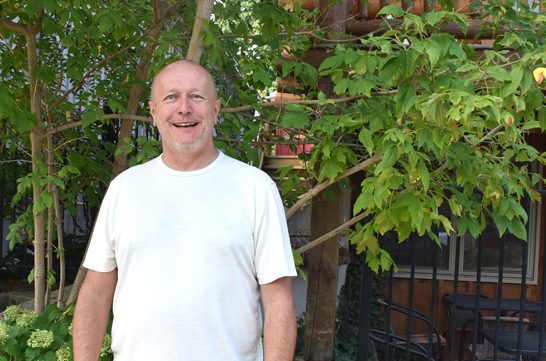CENTRE WELLINGTON – A Centre Wellington District High School teacher has taken a quantum leap forward in his career – and recently won some recognition on the international stage.
Tim King has been teaching at the high school since 2007, where he taught computer engineering and developed a program that produced top students in IT, coding, electronics and cyber security. He’s led the school’s CyberTitans cyber security team to several victories over the years.
Those contests won some attention from the Information and Communications Technology Council and King was seconded for two years to promote CyberTitan and cybersecurity learning opportunities for students nationally.
That garnered attention from Quantum Algorithms Institute, where King was again seconded to create new learning opportunities for students of all backgrounds aimed at the quantum computing revolution on the horizon.
Quantum computers are just three or four years away, King said in an interview, and they will revolutionize the way we get information and the way information is used.
“It’s quick in a way we can’t understand,” he said.
“Lasers and MRIs use quantum theory to work. Quantum computers can cure cancer; they can solve climate change. But they will break encryptions.”
His job is to examine the security side of quantum computers and figure out how to make them safe from hackers, and from themselves.
It’s a little “science-fictiony” – rise of the computers – but it’s a real and potentially dangerous threat, King said.
“We are desperately short of cyber security,” he explained. “If everyone was more cyber aware, we would raise that literacy.”
This work is a far cry from the classroom and King has had a whirlwind of a year, jumping headfirst into quantum computing and eventually travelling to Accra in Ghana, where he presented leading edge quantum cyber research to a global audience.
For this paper, he reached out to a former CWDHS student, Louise Turner, who was in his class in 2019 and was on the first all-girls’ CyberTitan team at the school.
“She was at Queen’s University studying cyber security. I knew what she was doing and that I could trust her,” King said.
“She was looking for an internship and I was looking for someone who could do the math. So we co-wrote the paper.”
The conference in Accra had representatives from 78 countries, all grappling with advances in technology, how these advances could benefit these countries, and the security pitfalls they’d also have to prepare for.
Months after the trip, King could still not believe he was rubbing shoulders with government officials, big business and educational institutions on that trip.
They did their presentation on the first day of the four-day conference.
“We were nervous, but we rocked it. People were really curious about it,” he said. “So many people in cyber security are not aware of the threat (of quantum computers). People were freaked out, which is good.”
King was also asked to speak at a conference in Washington this month. He’s impressed by the way officials and researchers are working on these huge problems together, sharing information and helping each other.
“It kind of restores your faith in humanity,” he said.
King recently won the mentorship award in the International Security Journal’s leadership awards, proving you can take the teacher out of the classroom, but you can’t stop him from mentoring young professionals.
His story included his teaching experience in Fergus, encouraging his students to join the CyberTitans, and now using his expanding connections to help former students in their academic and professional lives.
Mentoring, he said, “can be thankless. But if we don’t get young people ready for the future, who’s going to look after us?”
Director of education Peter Sovran highlighted King’s achievement during an Upper Grand District School Board meeting on Sept. 10, saying King “has inspired many students as an educator at CWDHS in the field of cyber security.”
The Quantum Algorithms Institute is taking King on for another year, so he won’t be returning to the classroom in 2024/25.
“Canada is really advanced with technology,” he said. “If we can help other countries, we should.
“It’s pretty cool. And it’s a turn in my career I never imagined.”



